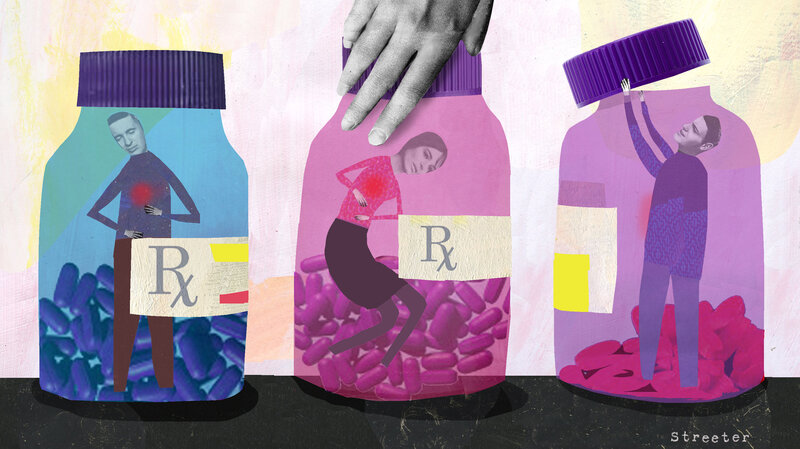Popular Heartburn Pills Can be Hard to Stop, and May be Risky
By Rob SteinPopular Heartburn Pills Can be Hard to Stop, and May be Risky
By Rob Stein
When Marcella Lafayette started having really bad heartburn, she went to her doctor to see if there was anything that might help.
“I was a experiencing a lot of chest pain, back pain caused from heartburn,” says Lafayette, 62, of Portland, Ore.
Her doctor diagnosed her with gastroesophageal reflux disease, or GERD, and prescribed a drug called a proton pump inhibitor, or PPI. The drug worked, but Lafayette soon started having other problems, such as muscle weakness and severe leg cramping.
Lafayette discovered she was suffering from a magnesium deficiency, a side effect of the drug. She also learned that PPIs can cause not just deficiencies of nutrients but other side effects, such as an increased risk for infections.
So Lafayette decided to try to stop using her PPI. But whenever she did, her heartburn returned. And the symptoms were much worse.
“I can’t seem to get off the drug because when I do, I experience severe stomach pain. I can’t eat anything without experiencing stomach pain,” Lafayette says. “It feels like you’ve got a knife in your gut. It’s just really painful.”
Lafayette is not alone. Many people have trouble discontinuing PPIs because the amount of acid in their digestive systems surges when they stop taking the drug.
Experiences like Lafayette’s, and rising evidence the drugs may be associated with a variety of increased risks, are making doctors increasingly worried about their wide use.
“The teaching for many years was that these drugs were quite safe,” says John Clarke, a gastroenterologist at Johns Hopkins Hospital in Baltimore. “But there is data that’s emerging that suggests PPIs may not be as safe as we think they are.”
An estimated 15 million Americans use PPIs, which are sold by prescription and over the counter under a variety of brand names, including Nexium, Prilosec and Prevacid.
They work by blocking production of stomach acid. And that could be the root of the problem, according to Clarke. Stomach acid helps digest food and also has a “barrier function against different pathogens which are ingested,” he says.
So when there’s less stomach acid, it leaves people vulnerable to nutritional deficiencies and infections, including food poisoning like salmonella, a serious, sometimes life-threatening digestive system infection called Clostridium difficile, and perhaps pneumonia.
In addition, one recent study suggested people who take PPIs may be at greater risk ofheart disease; another suggested they could increase the risk for chronic kidney disease.
As this evidence has emerged, Clarke says, “It’s imperative that people who take these drugs look at the risks versus benefits in their individual case and make sure the safety concerns are being looked at closely and people don’t use these drugs lightly.”
Many people take PPIs when they don’t really need them, Clarke says. They could get rid of their heartburn by making lifestyle changes, such as losing weight and cutting back on alcohol, caffeine and spicy and fatty foods. And many people stay on them a lot longer than they need them, he says. PPIs are usually supposed to be taken for two to eight weeks, although doctors may recommend more.
The companies that make PPIs say they’re safe for most people if they use them the way they’re supposed to. And doctors say many people really need to take a PPI for severe heartburn.
“Proton pump inhibitors do have some very positive benefits to patients,” saysKenneth DeVault, a gastroenterologist at the Mayo Clinic who is president of the American College of Gastroenterology. “They relieve symptoms better than any other medication that has ever been developed.”
The most important “positive effect of proton pump inhibitors is restoration of a quality of life,” DeVault says. “This is probably the big one.”
PPIs may also reduce the risk for esophogeal cancer for some people, he says.
DeVault says if someone really needs a PPI they should take one. But they should try everything else first, keep an eye out for any side effects, and talk to their doctor about how long they should stay on it.
— via NPR